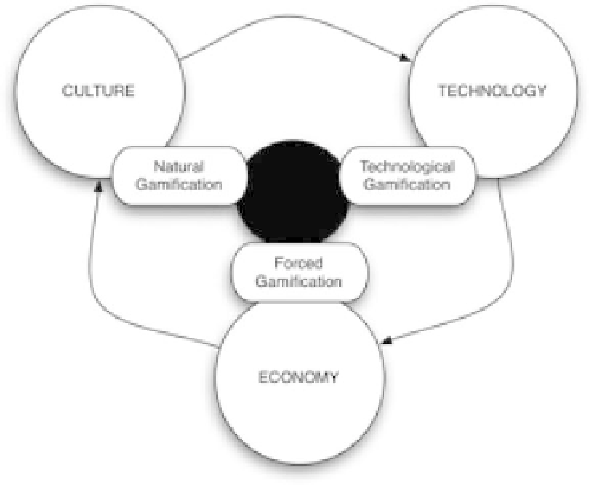Information Technology Reference
In-Depth Information
CULTURE
Gvnficaleri
ijamrlcabofi
NOMY
Figure 10.1
Bases of video games linked to kinds of gamifi cation.
These are somehow—as shown by
Figure 10.1
—closely related to three
fundamental aspects of video games: culture, technology and economy.
A CRITIQUE OF GAMIFICATION
In the Roman Empire, leisure (
otium
) became a means to the fi nal result,
namely, labour (
nec-otium
), and, thus, a part of the process of relaxing and
recreation of body and spirit that, as Cicero explained, is necessary to go
back to work.
In
La actividad y el ocio como fuente de bienestar durante el envejec-
imiento
, Miguel Ángel García Martín (2002) ai rms: “In this sense, Marx
adapts Hegel's concept of alienation, according to which the attempts on
the part of the working class to achieve an intellectual, human and social
development and growth are inhibited by its almost exclusive dedication to
labour [ . . . ] true freedom and development of the human personality can
only be attained through this availability of time for the individual itself,
once the materialism has been superseded. The achievements [ . . . ] of the
19
th
century will lead [ . . . ] to the democratization of leisure time and its
being enjoyed by nearly every social strata.”
In 1820, Charles Fourier developed his idea about creating agricultural
and industrial establishments where groups of more than one and a half
thousand people would work within communities and share the benefi ts

Search WWH ::

Custom Search